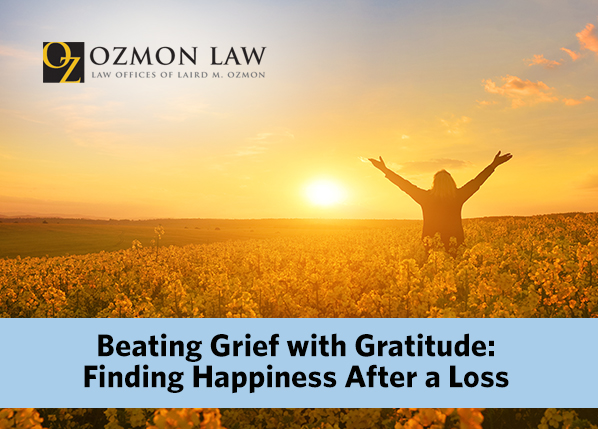“Happiness is not about what the world gives you, it’s about what you think about what the world gives you.”
Google executive, Mo Gawdat, made this keen observation in a video about his equation for finding happiness in the face of tragedy. View video.
Like many of my clients, his life changed in an instant—from a happy family holiday to the realization of his worst fears, the death of his son, all in the span of four hours. He describes the power we have over how we choose to see our lives and manage our expectations. He takes the “glass half full” approach and challenges us to be grateful for what is in the glass and ask the question, can we do anything about the half empty part?
Nothing this loving father could do would bring his son back. Rather than burrow inward and become paralyzed by his loss, he chose to accept life as it is, take each day and make it slightly better. As an advocate for victims of tragedy, this is a recurring theme in my work. Nothing—no dollar amount, no oral argument, no jury verdict or judgment can turn back time, bring a victim of wrongful death back or make one who is personally injured whole again. Victims who seek this unattainable expectation will never find it, particularly in the justice system.
It is my job, and my privilege, frankly, to manage expectations as I pave the way to ease the burden to ensure the sense of contentment and happiness comes more swiftly to my clients. When we team up with victims and their loved ones on the road to recovery, plaintiff’s attorneys are essentially executing Mr. Gawdat’s plan to make each day incrementally better so our clients can see all the water, even if it’s in a different glass.
As the Thanksgiving holiday approaches, we all should give a bit more credence to gratitude not only for what we have, but also for what we do not.
The victims of wrongful conduct are often saddled with lifelong disabilities and deprivations from which most us have been fortunately spared. Such wrongful conduct deserves rightful compensation. This does not necessarily mean that injured victims are thereby made whole again; they often never can be. However, a system of justice that seeks to alleviate some of their anxieties and fears affords them a chance to focus on the beauty in what they had while they had it and to wake up every day with an eye toward making their futures just a little bit better. Hopefully, then one day, they may wake up feeling like they never thought they would feel again: happy.

Attorney Laird M. Ozmon

